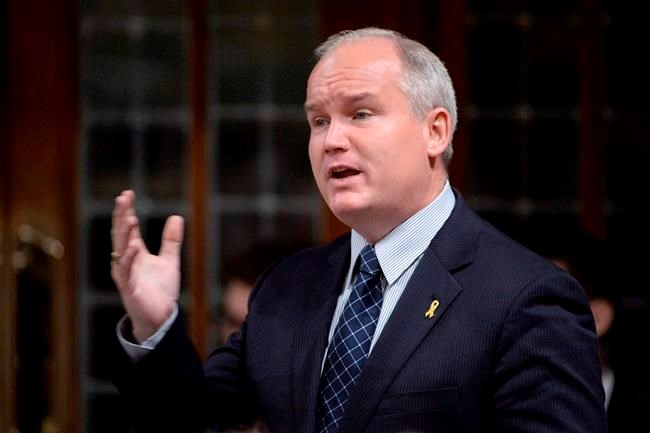Prime Minister Justin Trudeau’s election trigger finger just got decidedly itchier.
That is because the federal Conservative Party took a giant leap into the past when its policy convention voted against efforts to enshrine the reality of climate change in official party policy.
More than half of the party’s convention delegates voted against including these sentences in its platform: “We recognize that climate change is real. The Conservative Party is willing to act.”
While these are only two sentences, the rejection of what they say (that climate change is indeed “real”) further pushes the Conservatives out of the mainstream and further away from a growing number of voters in key urban and suburban centres.
This is delightful music to the ears of Trudeau and his Liberals.
The issue of climate change – and the need to fight it – is rising in importance among voters, particularly those who live where most of the electoral ridings exist: in those same urban and suburban areas.
Of course, there is nothing stopping Conservative Leader Erin O’Toole from shrugging off this vote – he wanted it to pass – and come up with his own climate change action plan and put it in front of voters when an election is called.
However, if he does just that he may risk a full-fledge revolt by much of the party’s grassroots. Those folks tend to live in the western provinces and many natural resource-dependent small towns.
In any event, this episode gives the Liberals and the federal NDP ample fodder to continue to cast the Conservatives as a bunch of old, out-of-touch climate-change deniers. And, given the evidence that the issue of fighting climate change is clearly so divisive for the Conservatives, it is virtually certain both of the other two parties will make it a major focus of their campaigns.
In addition, the controversy generated by this misstep comes at a time when the party is struggling with other issues. There have been reports of internal strife over O’Toole’s leadership and poll after poll shows the party consistently trailing the Liberals among decided voters nationally, but even more so in the riding-rich areas of Greater Toronto, Metro Â鶹´«Ã½Ó³»and Greater Montreal.
Social conservativism, a sure-fire vote-losing position if there ever was one, seems to be popping its head up within the party from time to time, offering free swings to the Liberals and the NDP.
Then there is O’Toole himself. He has yet to establish much of a presence with the voting public and seems to bounce between mutually exclusive positions.
He wants a sharper and more aggressive strategy to fight climate change, yet his own party and a big chunk of his caucus do not share the same view when it comes to setting priorities on this file.
Meanwhile, Trudeau and his government continue to kick gargantuan amounts of money out the door in various financial aid programs. Deficit fighting, a traditional hallmark of Conservative philosophy, seems a distant memory for so many.
This is all starting to look like an early election, perhaps as early as May or June. Trudeau clearly has his finger on that election trigger and the question now is when he pulls it.
Keith Baldrey is chief political reporter for Global BC.
